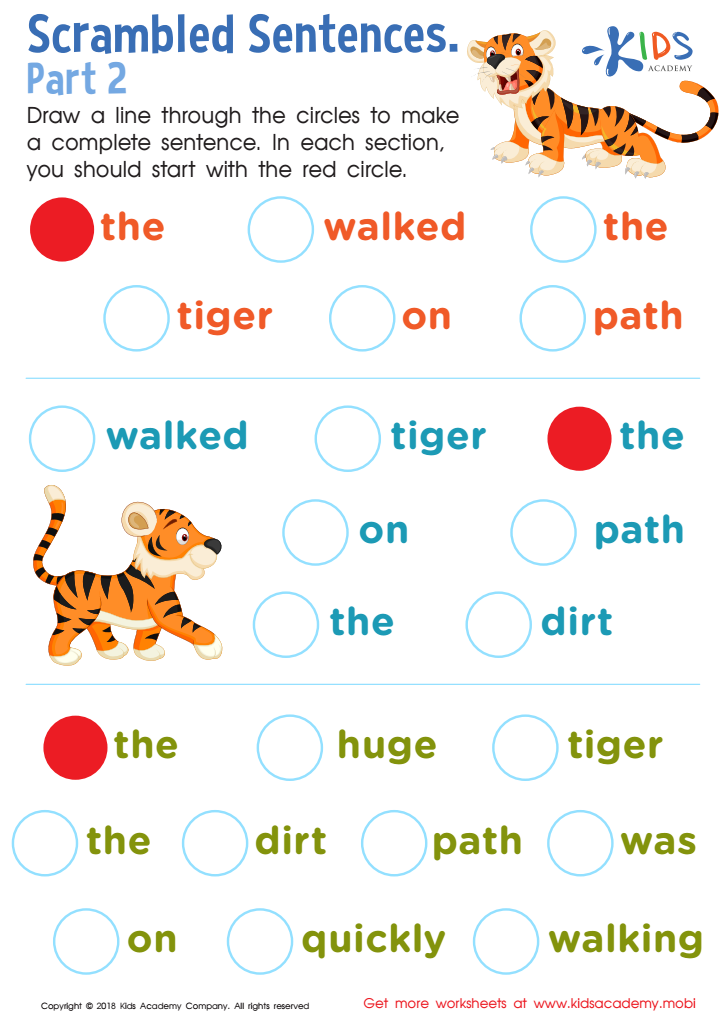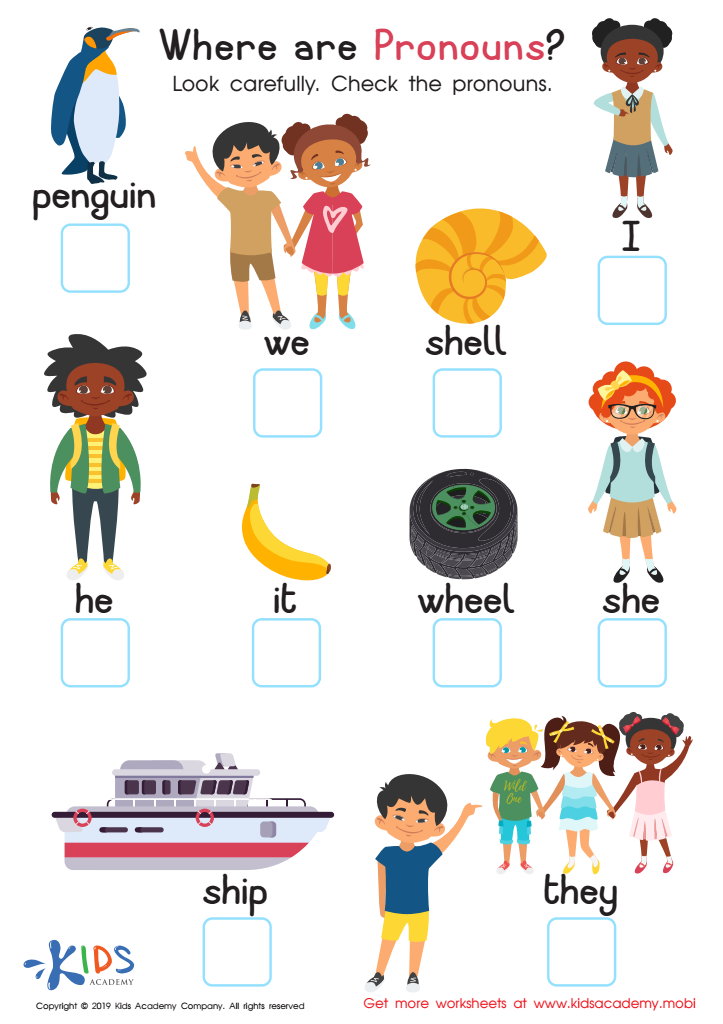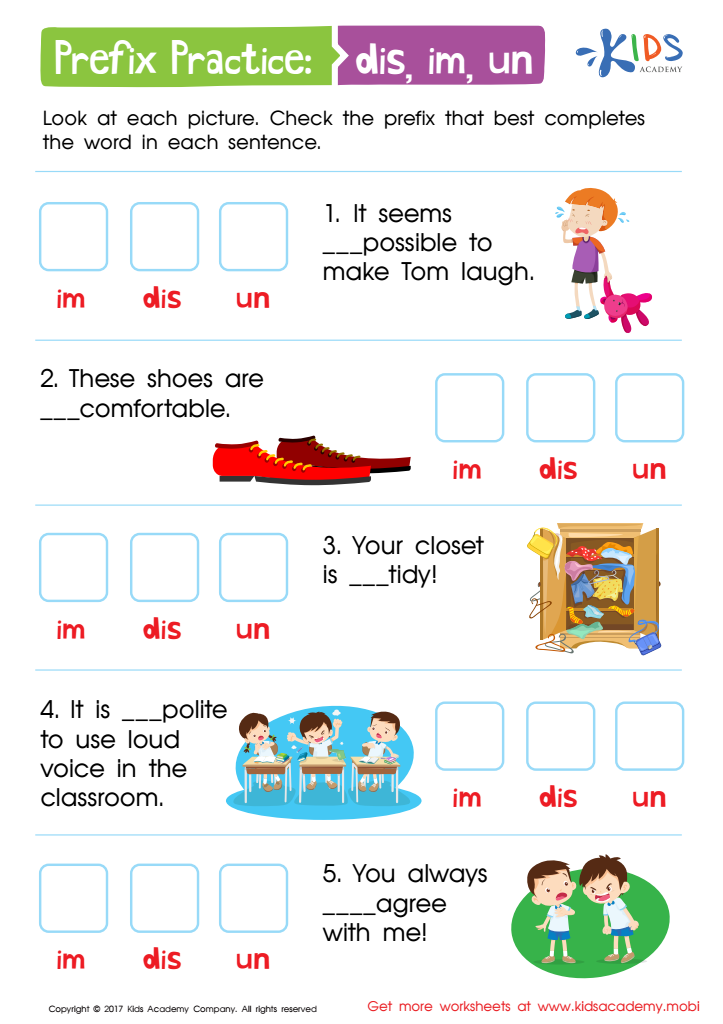Grammar skills improvement Normal Reading Worksheets for Ages 3-8
4 filtered results
-
From - To
Enhance your child's grammar skills with our engaging Normal Reading Worksheets, specifically designed for ages 3-8. These worksheets offer a fun and interactive way for young learners to strengthen their understanding of grammar concepts through vibrant illustrations and relatable activities. With various exercises tailored to different skill levels, children can practice essential grammar rules while refining their reading abilities. Our resources promote critical thinking and retention, making learning enjoyable and effective. Perfect for home or classroom use, these worksheets aim to foster a love for language and enhance early literacy development in young learners. Start your journey towards grammar mastery today!


Scrambled Sentences Part 2 Worksheet


Adjectives Worksheet


Where Are Pronouns? Worksheet


Prefix Practice Worksheet: DIS, IM, UM
Grammar skills are foundational to early reading development for children aged 3-8, and their improvement should be a priority for both parents and teachers. This developmental stage lays the groundwork for effective communication and literacy. Understanding basic grammar helps children make sense of language, including sentence structure, word usage, and punctuation, which are essential for reading comprehension.
Well-developed grammar skills enhance a child's ability to decode texts and engage with them meaningfully. When children grasp grammar, they can better articulate their thoughts and feelings, leading to more effective verbal and written communication. This not only boosts their confidence but also promotes social interactions, as they express themselves clearly and accurately.
Additionally, grammar is intertwined with critical thinking. As children learn to analyze and construct sentences, they develop problem-solving skills that extend beyond language. Improved grammar skills foster a love for reading, encouraging exploration of diverse texts.
Incorporating grammar practice into reading activities provides a dual benefit: enhancing literacy while building critical language skills. Thus, investing time in grammar development in early reading not only prepares children academically but also equips them with tools for lifelong learning and effective communication. Parents and teachers play a key role in nurturing these essential skills.
 Assign to My Students
Assign to My Students




















